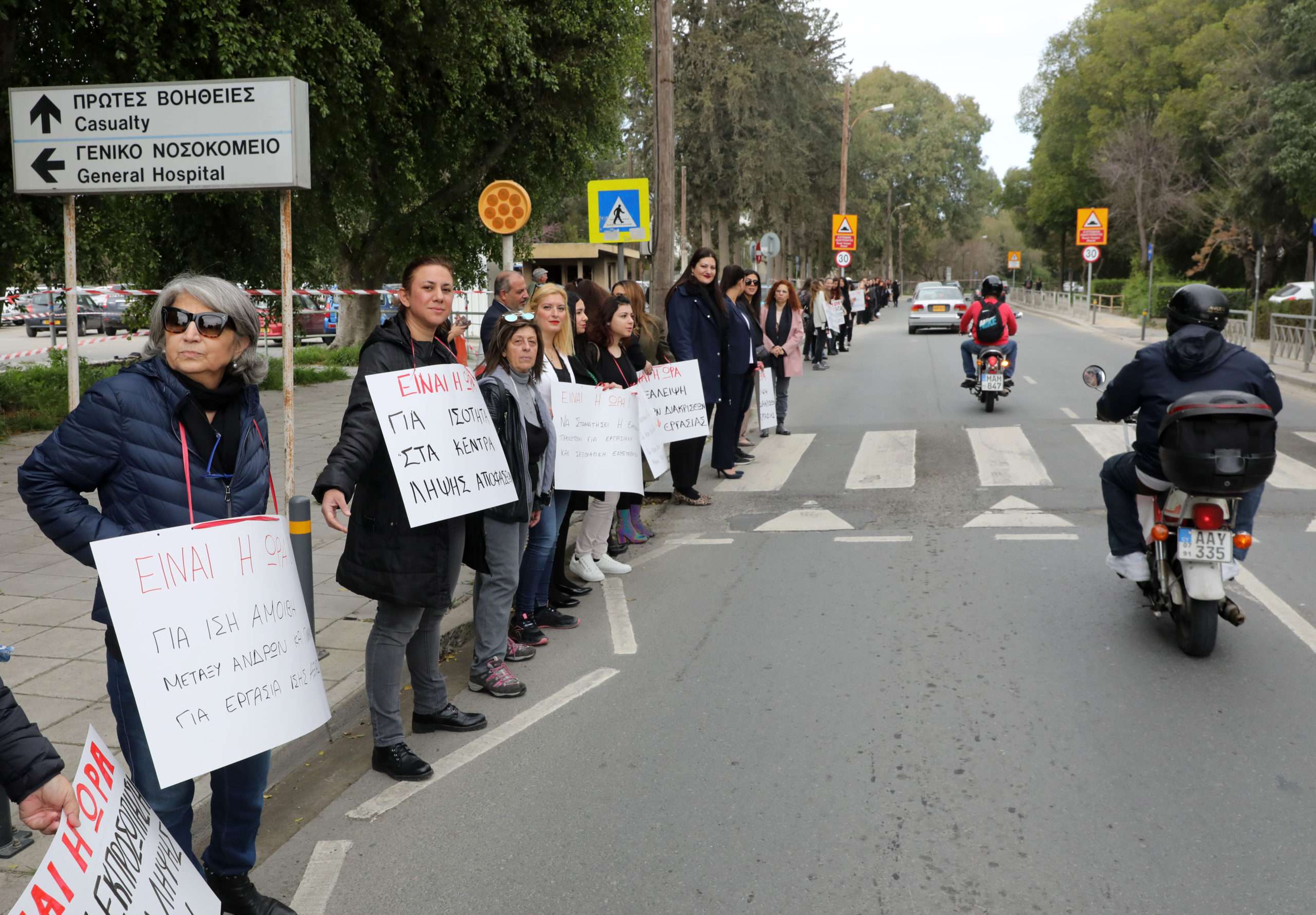Cyprus is not closing the gender gap in politics, ranking 112 globally for female participation in parliament, as less than one in five MPs are women.
The disappointing absence of women in Cyprus politics is because party ranks remain male-dominated, or the concept of closing the ‘gender gap’ has not yet sunk in.
With Cypriots heading to the polls for Sunday’s parliamentary elections, getting more than 20% women MPs is a tall order.
Of the record 651 candidates, less than a quarter or only 157 are women (just 24.1%), only two parties have female leaders – incumbent Anna Theologou of Allagi Genias and former MEP Eleni Theocharous of Solidarity.
The outgoing House of Representatives had just 11 female deputies, or 19.6% of the legislative body, the highest it has ever been in the Republic’s 61-year history.
Cyprus’ below-par performance does not sit well, said Director of the Mediterranean Institute for Gender Studies, Susana Pavlou.
“Although one might imagine that 19.6% of women MPs is an improvement, the truth of the matter is this increase came about because male MPs moved on to other posts, or resigned, with the majority of those next in line being women,” Pavlou told the Financial Mirror.
She argued that Cyprus could not boast any improvement in women representation in key positions since independence, as the rate has fluctuated from 0 to 20%.
Pavlou said women have to deal with barriers such as the lack of social welfare and childcare services, forcing them to stay at home, keeping them away from decision making positions.
“The parties are supposed to be the gatekeepers of democracy, but we do not see them taking any action to promote gender equality.”
Considering the candidate lists of the two major political parties in Cyprus for the May elections, female participation is no more than 25%.
Ruling DISY has 14 women from 56 candidates, while the main opposition party AKEL has 13 women on its ballot.
Pavlou said an argument put forward by parties is that women do not come forward to take key positions or their fault for not being elected.
“The undying argument is that women are not elected simply because women are not voting for women.
“This simply is not the case, and an example of transferring responsibility from political parties who are supposed to be the gatekeepers of democracy to individual women and their choices,” said Pavlou.
She argued that if a party has only two or three women on a ballot in a given constituency, then women, by default, would have to vote for all of them to be able to elect more women to parliament.
“It is as if we are told that women should vote for women just because they are women, regardless of whether we think they are worthy or not.
“Women need to be given an equal choice of candidates to choose from.”
Pavlou also argued that parties should be promoting legislation to liberate women from the burdens put on their shoulder by a patriarchal society.
“Active women MPs had to give up their political career to stay home and take care of their children, or even grandchildren.”
Human rights
Alexandra Attalides, former European Parliament Press Attaché and a Green party candidate, told the Financial Mirror that it would take Cyprus another 70 years to close the gender gap.
“We should view the matter not as an issue that affects women, but as an impediment to implementing human rights.”
She argued the structure of society should be reflected at policy-making centres.
“Right now, we have less than 20% women MPs and just three female cabinet members.”
Attalides argued that if parties genuinely want a stronger female presence, they need to encourage their female members and put forward changes in laws allowing women more free time.
“You have put your money where your mouth is. And quite literally. You can’t be advocating for more parental leave if you are not willing to pass laws that would guarantee it.”
She said the parties argue that introducing quotas on ballots is against the constitution, but “other EU states, such as Greece, have changed their constitution exactly to overcome such obstacles.”
The Green party’s ballot is 40% female.
DISY MP since 2016, Annita Demetriou, is disappointed that women in the 21st century still have to strive to prove they are worthy of equal opportunities in decision-making institutions.
Demetriou said that political parties would have to join forces to create equal opportunities for women despite Sunday’s outcome.
“We need to boldly introduce laws and political procedures that ensure the next time women will have more opportunities to step into decision making positions.
“An investment in society and its structures needs to be put forward, to help women reconcile their life at home with their careers.”
Main opposition AKEL MP Eleni Mavrou, a former interior minister and Nicosia Mayor, said to begin a debate on the presence of women in parliament is problematic.
“Parties need to start investing in women in their own organisations.
“There are many women who are very active in local party committees, school parents’ associations, and municipalities.
“However, these women usually do not move on to decision making positions.
“We need to empower women, giving them what they need to take a leading role in society.”
Mavrou believes these issues cannot be solved in the months leading to an election, when parties start putting ballots together, looking for women candidates.
“The political system needs to focus on resolving these issues in the long run, starting from today, but not stopping on Monday.
We need to invest in women. And to do that, we need the support of the state, but also the political parties.”










